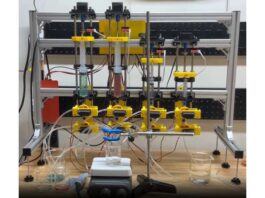This investigation has the potential to significantly impact the company’s growth and innovation, as well as determine who can benefit from advancements in the burgeoning AI market.
The boardroom of OpenAI, the organization behind the development of ChatGPT, has been embroiled in recent upheaval. While the controversy surrounding the removal and subsequent reappointment of CEO Sam Altman has subsided, a new challenge has emerged for the company – an investigation by the UK Competition and Markets Authority (CMA). This regulatory body, increasingly focused on scrutinizing big tech companies, is now turning its attention to OpenAI.
In November, the unexpected removal of Sam Altman from the company’s leadership prompted swift action from tech giant Microsoft, which not only hired Altman but also advocated for his return as the company’s CEO. Shortly thereafter, Altman was reinstated as CEO, and a new board was established, with Microsoft securing a non-voting observer seat. Microsoft is not only the company’s largest investor, injecting approximately US$13 billion (£10.3 billion) into the organization, but also the exclusive provider of cloud computing services crucial for the company’s AI model development and operation. This episode has highlighted the close ties between both the companies, leading the CMA to announce an investigation into their relationship.
The CMA aims to determine whether the partnership between them constitutes a merger, implying a shift in control. If deemed a merger, the CMA will assess whether it has led to a substantial lessening of competition (SLC) and explore potential remedies, potentially altering the company’s governance structure. Additionally, the CMA will scrutinize Microsoft’s supply of cloud computing services to the company’s competitors, potentially considering this as an anticompetitive behavior that harms competition. The compamny has also developed general-purpose AI systems applicable to widely-used consumer applications such as productivity software and search engines. The CMA will examine Microsoft’s capacity and incentive to limit the supply of AI systems to rival companies in these markets.
This investigation signifies heightened scrutiny of the high-tech sector, which global competition authorities have monitored closely for years. The CMA established a Digital Markets Unit in 2021, and its recent decisions, such as delaying Microsoft’s acquisition of Activision Blizzard and blocking Meta’s acquisition of Giphy, have focused on concerns related to restricting supply to rivals. Regulating tech companies presents challenges due to the dynamic nature of these markets and the lobbying power of large corporations with global influence. Nonetheless, competition authorities recognize the necessity of early intervention to prevent dominant positions from solidifying. With AI poised to transform various aspects of society, the CMA has an opportunity to shape the sector’s development and ensure broad benefits. Potential actions may involve altering the company’s ownership structure, regulating its operations or products, and closely monitoring this evolving market.




